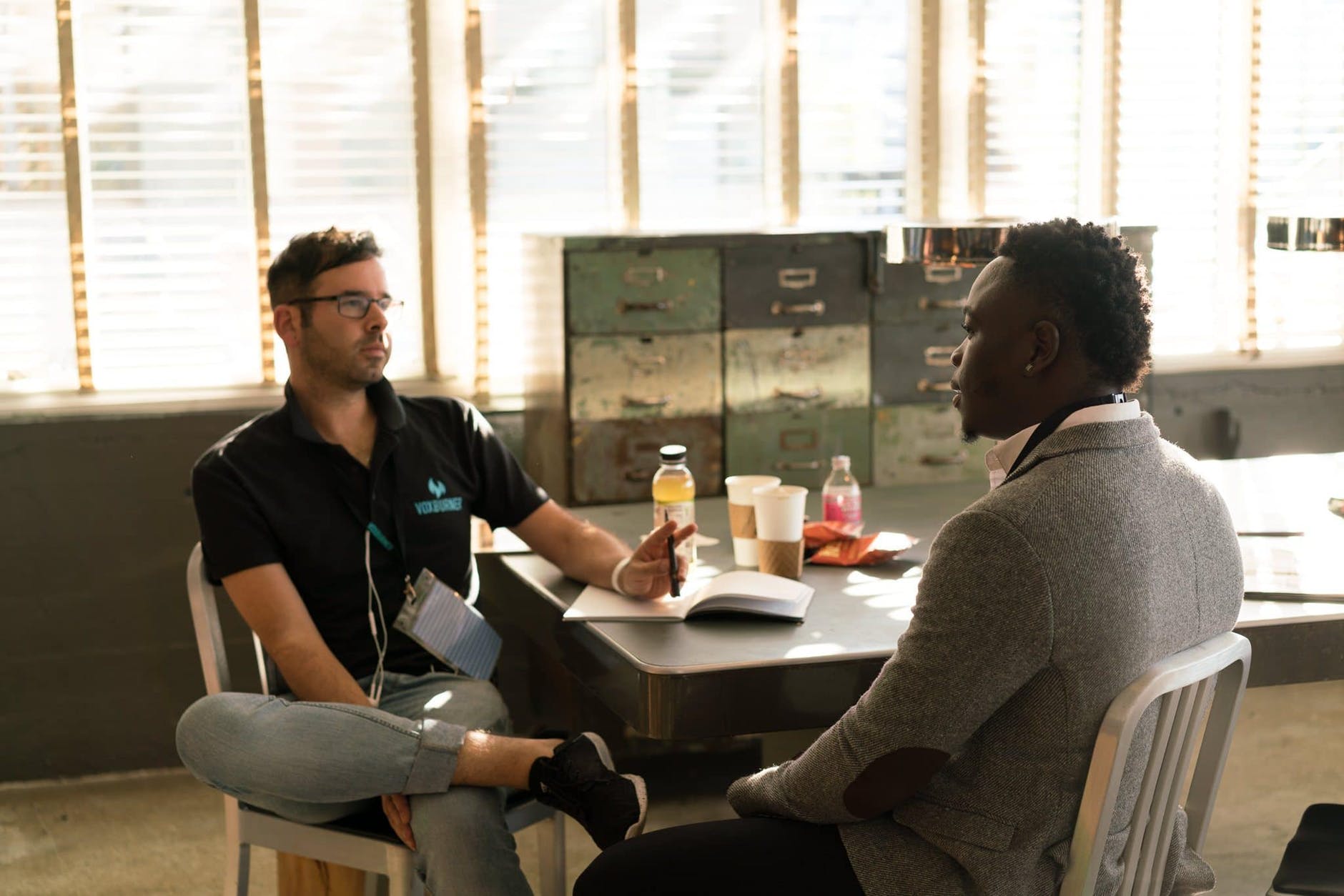A Guide to In-Person Interview Questions
Being given the opportunity to be interviewed by a potential employer can be a bittersweet moment for any applicant. As much as you’d love to get the job, interviews can get pretty intimidating at some point. It’s like joining a pageant where you’re made to respond with an extemporaneous speech in front of someone who could one day be your boss.
- Tips for Job Interview with Sample Questionnaire
- 9+ Interview Evaluation Form Examples & Samples in PDF
To make sure you don’t end up stumbling on your own words, it’s best to start practicing your answers for the meeting with the help of a few in-person interview questions.
Common Interview Questions to Expect
There are many possible questions that interviewers are likely to ask. But unlike a telephone survey, you may be judged by your response in words and in actions.
Here are some commonly asked questions to prepare you for your interview:
1. Tell me about yourself.
Though this might seem like a simple question to ponder on, ironically, it can also be pretty difficult to answer. This is a popular question that is likely to pop up in any form of personal interview, whether it’s an HR interview question for a potential job position or a student interview for a college application.
The good news is, the odds will always be in your favor with this type of question. You can start simple by focusing on your personal background.
This includes a quick overview of your educational attainment, your past work experience, a bit of your background, and maybe even some of your favorite hobbies and sports. The way you answer this question will give the interviewer a glimpse of who you really are, which goes beyond the glitz and glam of your resume and application letter.
2. Can you describe yourself in 3–5 words?
Thinking of three to five words that best describe who you are can be quite nerve-wracking during a face-to-face interview. But instead of stating the cliché (interviewers might have heard simple, unique, and fun at least a thousand times in their course of work), you might want to stick to the qualities that are relevant to the interview’s purpose. You may also see interview questionnaire examples.
For instance, if you’re looking to a get a job as a graphic designer of the company’s marketing department, then you can define yourself as creative, imaginative, and other similar qualities that a future employer might be interested in.
3. What drives you?
Again, focus on your end goal of the interview. If you want the internship so bad, then you need to mention things that an interviewer would want to hear. Anything along the lines of, “striving to be the best,” can earn you a point. You can also talk about the essence of working to reach targets as a team to indicate your motivation to continue on despite the difficulties that may hinder your performance. You may also like interview schedule examples.
4. Can you define your strengths and weaknesses?
Talk about the most relevant strengths that can contribute to a particular job. This will help the interviewer assess your capacity as a candidate, and whether or not you would suit the position well. At least three of your most notable strengths would be enough to illustrate a good picture for the interviewer to remember you. You may also check out interview email examples.
As for your weaknesses, be careful with your words. Keep in mind that your response can either make or break your chances for the position. There are two possible ways to go around this: you can either poke some fun with your answer (perhaps “chocolate” could be your Kryptonite), or pick a weakness that won’t affect you assuming you were to get the job. You might be interested in interview agenda examples.
5. Where do you see yourself in the next five years?
You need to be ambitious with your answer. Many interviewers look for candidates that are goal-oriented, as this can say a lot about their work ethics and their attitude toward the things that surround them. It’s always good to respond with a highly motivated answer. You can talk about potential skills you wish to improve on, along with the responsibilities you hope to face as a professional in the field. You may also see interview summary examples.
6. Why did you decide to leave your previous job?
This is a trick question that you might want to think through before answering. There are many possible answers to this question, but whatever you do, NEVER talk negatively about your previous employer.
Try not bring up any issues or disagreements that occurred in the past with a former manager or colleague. If you speak ill about somebody you used to work with, then it creates the assumption that could end up speaking about your future employer the same way. Remember, you need to paint yourself in a good light. You may also like interview writing examples.

A possible (and a much safer) reason could be a for a better job opportunity, a change in environment, a chance to grow professionally, or due to a personal reason such as a change of residence.
7. How much do you expect to receive?
You don’t want to be too specific with your answer. You may end up asking more than what your capabilities and experience qualify you for, which can come off as overly demanding in the eyes of potential employers. You may also check out how to write an interview report with examples.
Instead, set a range that’s more practical. Some employers might agree to it, but those who don’t, would decide on a slightly lower offer that’s close to what you expect. Try not to sell yourself short as they could possibly settle for a salary that’s a lot less than you actually deserve, or to what they initially had in mind. You might be interested in samples of pre-interview questionnaires.
8. Do you work better alone or in a team?
Some people work better alone than they do in a team (or vice versa).
However, this is a trick question where either choice could make you look bad nonetheless. So rather than choosing one over the other, why not say both? Employers are always looking for candidates that are great as a team leader just as they are as a team member. It would be even better if you could prove it during boot camp or training, but for now, you might want to put the good word in. You may also see interview essay examples.
9. What are the things that you like and dislike from your current position?
Similar to your strengths and weaknesses, your response may affect your chances for the job. So instead of focusing on the negatives, try shifting the interviewer’s attention toward your positive outlooks. This is critical when getting a job with a similar role, as you may face the same challenges as you did in the past. You may also like ways to impress at a job interview.
Be honest and tell the interviewer exactly what you like about your current position, and that doesn’t mean the perks that come along with it, but the actual things you enjoy doing on day-to-day basis. Your answer should highlight your work ethics and personal qualities to illustrate a good image of yourself for potential employers to take notice. You may also check out job interview tips to leave a great impression.
10. Do you have any questions that you wish to ask me?
There are many possible answers to this question, most of which concern your personal interests. However, you don’t want to get ahead of yourself by asking questions about job promotions and other perks that only official company employees should know about. You may also see phone interview questions.
Instead, focus on the company itself. Showing genuine interests toward the company portrays your enthusiasm to work for this employer if given the chance. You can ask questions about the company that haven’t been discussed in the early stages of the interview, such as a brief background of the company along with its achievements in the market. You may also like thank-you emails after interview.
This will also help you determine whether the company suits your desires in case you do get offered the job. After all, you wouldn’t want to ace your interview only to send in a resignation letter just a few months later.
Through it all, be confident! You may feel nervous about the encounter, causing you to forget a few words and answers that were brought up during your practice session, so masking this uncertainty with a nice smile and bit of confidence will certainly be the perfect weapon to use during your interview. You may also check out how to write a job interview thank-you note.


